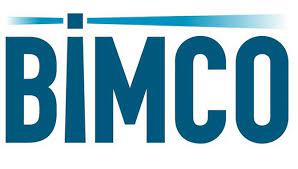
BIMCO sets sights on a global electronic bill of lading standard
COPENHAGEN : As part of a major initiative to accelerate digitalisation in the shipping industry, BIMCO has teamed up with the International Chamber of Commerce (ICC) and other key stakeholders to help identify and overcome obstacles preventing a more widescale adoption of electronic bills of lading.
“Establishing a globally accepted standard for electronic bills of lading is a critically important step for the successful digital transformation of our industry,” says Grant Hunter, Head of Contracts and Clauses at BIMCO, who is leading the project for the organisation.
BIMCO is to play a key role in this process by developing a global electronic bill of lading (eBL) standard for the dry and liquid bulk sectors and encouraging its acceptance and adoption by regulators, banks, carriers and insurers.
“BIMCO is widely known to regulators, banks and insurers for its standardised paper bills of lading such as CONGENBILL and CONLINEBILL. We want to take that same harmonised approach to facilitating trade by developing an eBL standard,” he says.
Global trade needs standards
“The ICC is looking forward to working with BIMCO on its ambitious goal of delivering an electronic bill of lading standard for dry and wet bulk shipping to the world,” says Oswald Kuyler, Managing Director of the Digital Trades Standards Initiative (DSI) at the ICC.
“Being at the forefront of global developments in shipping BIMCO is perfectly placed to undertake this ambitious task. Global trade needs standards to digitise trade at scale and BIMCOs work will help unlock the digitisation of another critical instrument,” he says.
BIMCO’s electronic bill of lading standard will be fully aligned with the UN/CEFACT MultiModal Reference Data Model to ensure seamless and transparent eBL transactions across international borders. The organisation plans to develop its eBL standard with the assistance of, among others, the Digital Container Shipping Association (DCSA) who published their own standards for the liner industry in December 2020.
BIMCO tackles challenging carbon rules with new charter party clauses
An impact study by BIMCO and several key stakeholders to identify the commercial and contractual implications of impending International Maritime Organization (IMO) carbon regulations has highlighted a raft of contractual challenges. BIMCO’s documentary experts have begun preparing charter party clauses to assist owners and charterers comply with the new regime. Charter parties that extend beyond 2023 are already being negotiated and agreed, so this task has been given top priority by the organisation.
The main driver for this initiative is the amendments to chapter 4 of MARPOL Annex VI, due to come into force in 2023, which will tightly regulate the energy efficiency and carbon intensity of ships. The future regulatory framework is complex and challenging and may require shipowners to reduce engine power and speed to comply with the Energy Efficiency Existing Ship Index (EEXI). The carbon intensity index (CII) requirements may also see shipowners having to reduce cargo intake in addition to routeing and slow speeding measures. Compliance with the new regime may mean that shipowners are at risk of being in breach of their obligations in performing the voyage under standard charter party terms.
An essential part of this process is bringing owners and charterers together to find practical and commercial solutions to issues that are fair to both parties. BIMCO’s impact study has indicated that the commercial implications of CII will be as equally challenging as the contractual issues. Compliance will involve cost. This may take the form of capital costs installing new equipment to make the ship more efficient; or it may be costs related to cargo shutout and longer voyage durations. A fair allocation of costs and responsibilities will be at the heart of the new BIMCO clauses to ensure that neither party is unduly disadvantaged by the carbon regulations.
Is it a tax?
BIMCO will also look closely at emission trading schemes currently under discussion and how they be dealt with in charter parties. Although carbon levies could be considered a “tax” for the purposes of charter parties and therefore covered by existing clauses in standard forms, it may be that a more prescriptive approach is called for.
As with the industry’s transition to low sulphur fuels in 2020, the carbon clauses will require owners and charterers to closely cooperate on technical and operational activities. On this aspect BIMCO has been encouraged by the willingness of several dry cargo and wet charterers to work together with shipowners and BIMCO to find contractual solutions.
BIMCO’s Documentary Committee will discuss the draft carbon clauses over the summer and review then for possible adoption in September.
Source : Hellenic Shipping

